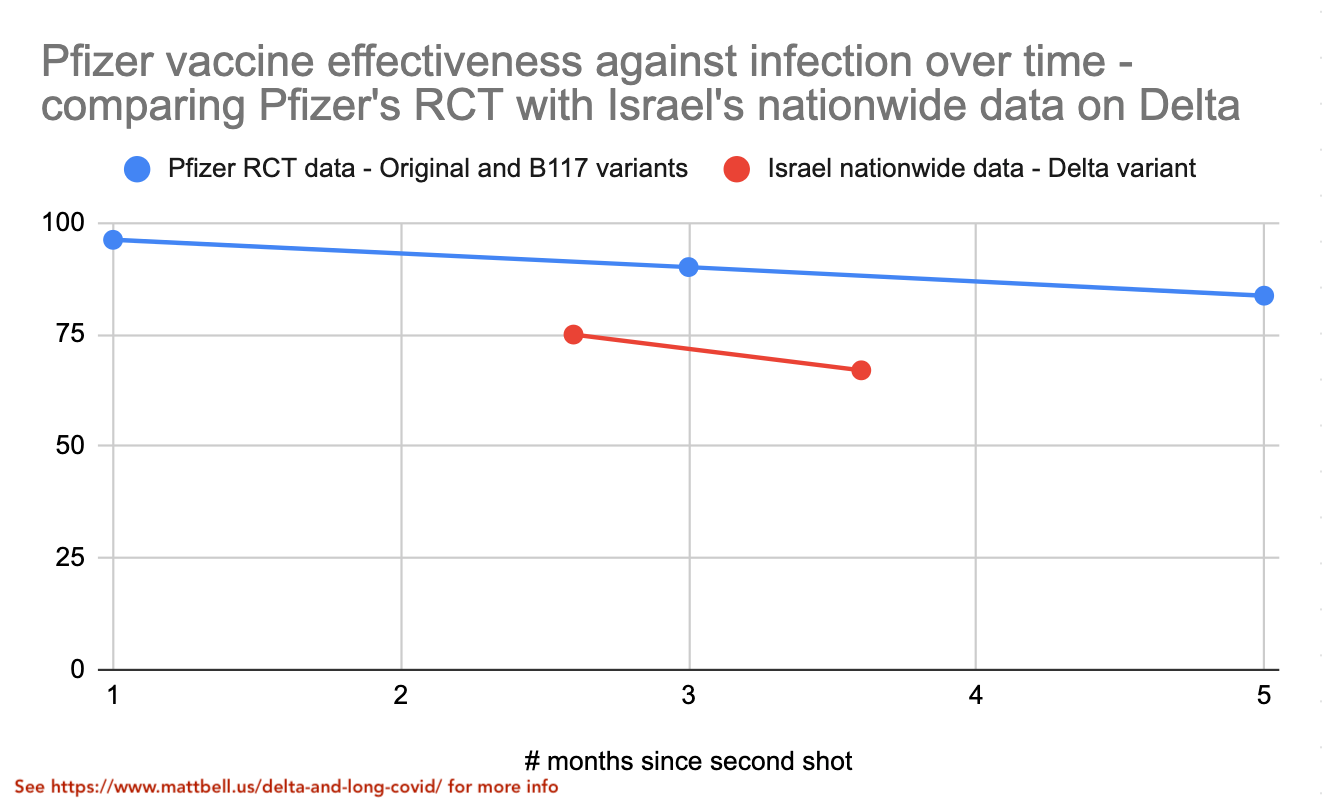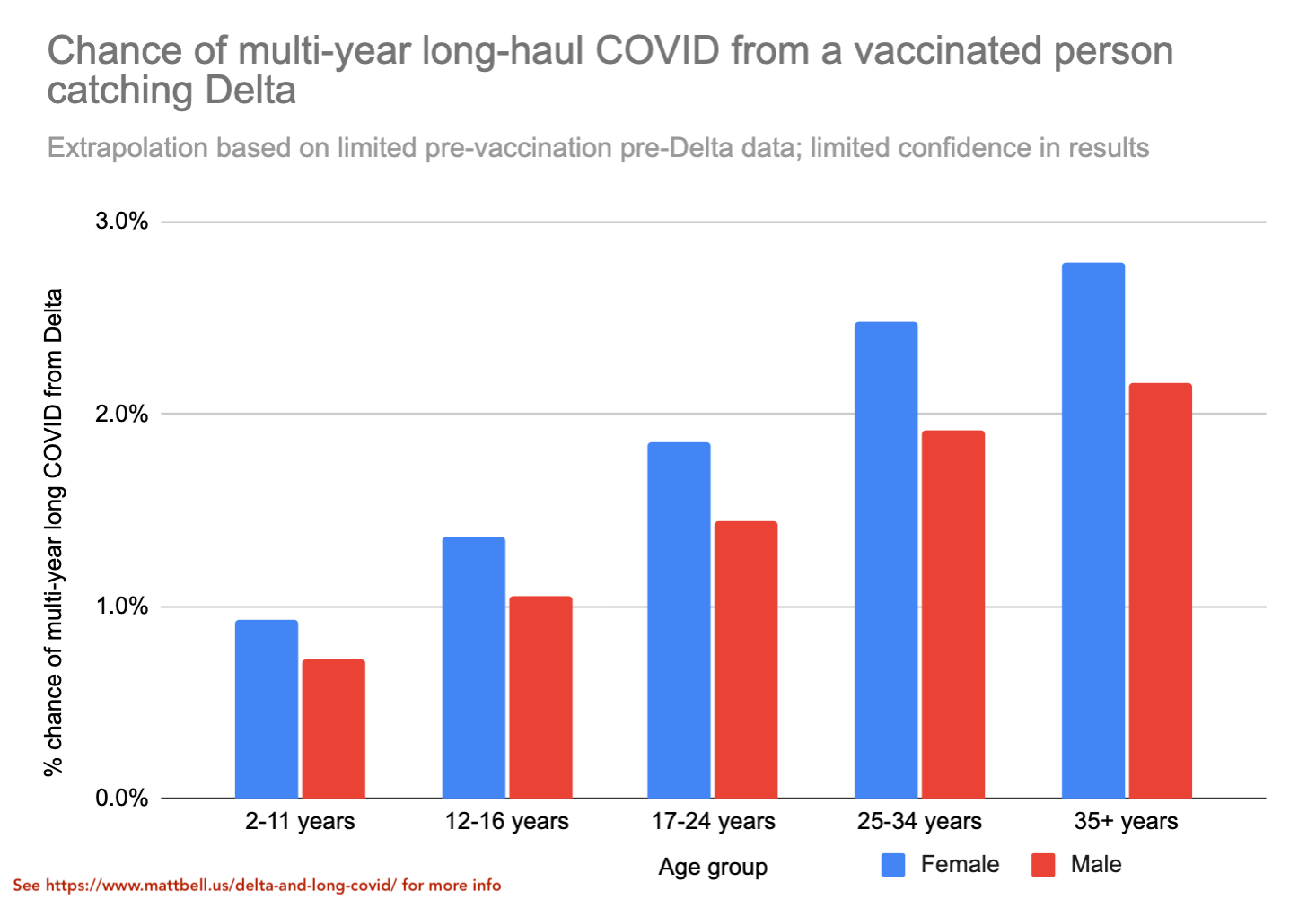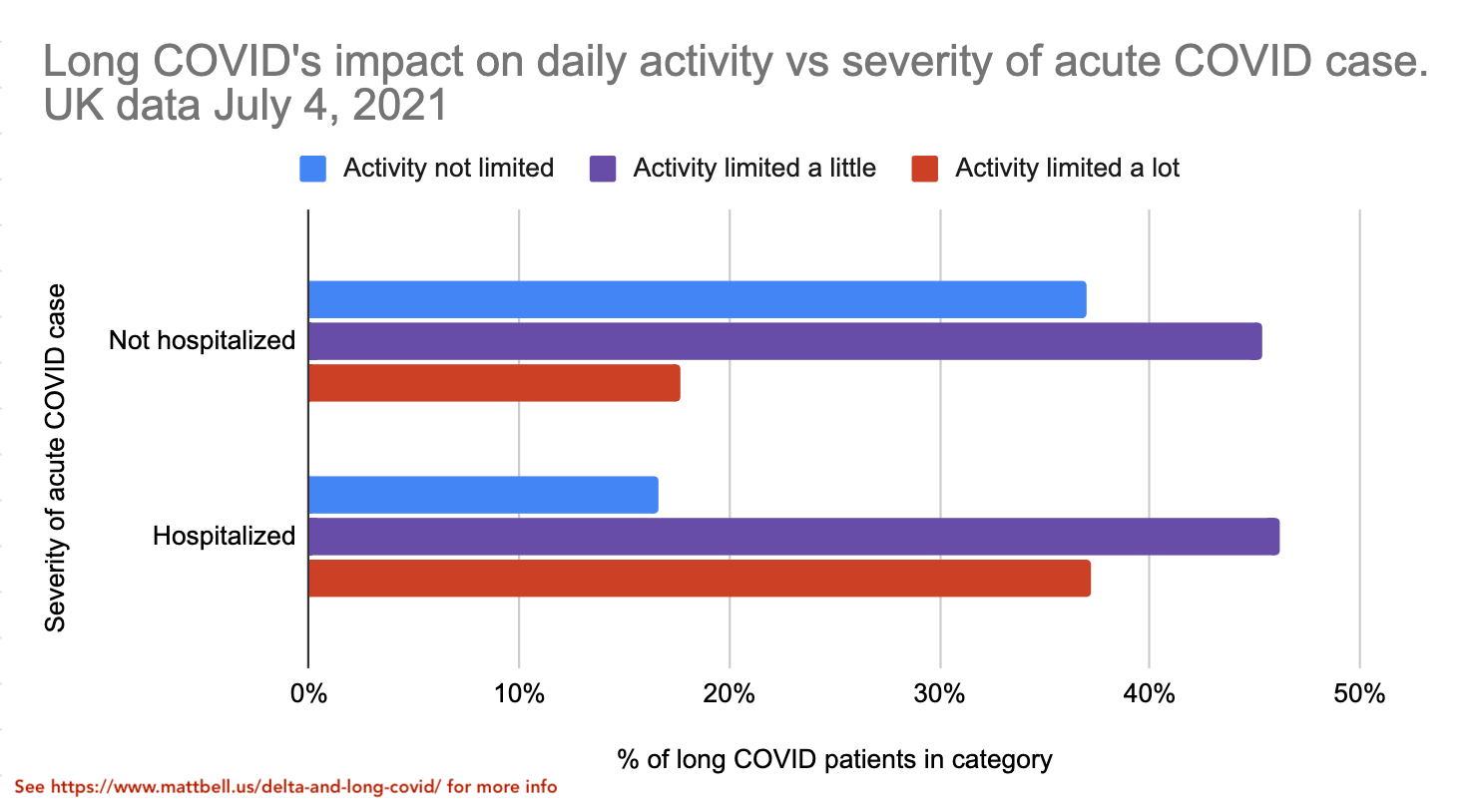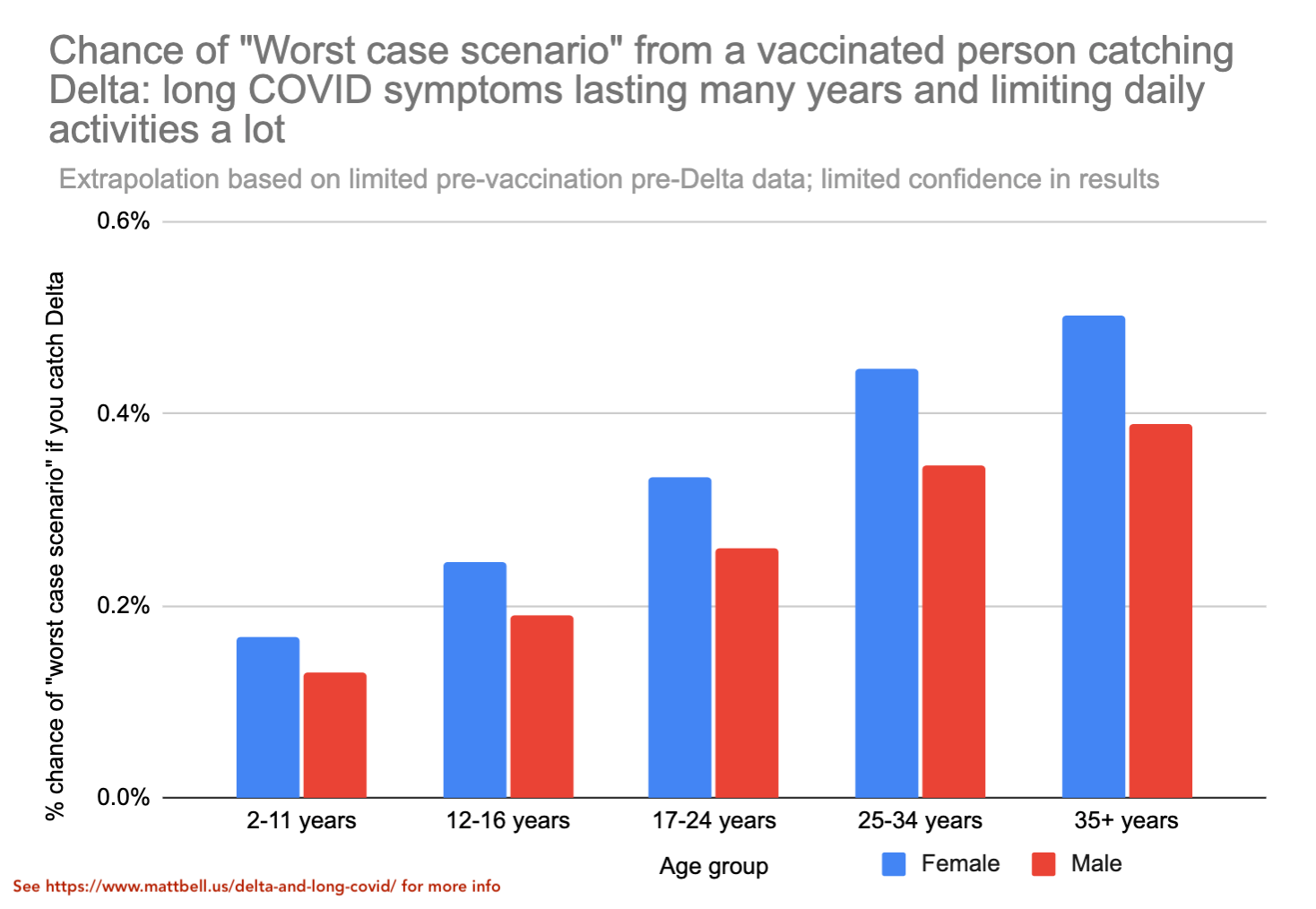I got a lot of feedback on the Long Covid & Delta Variant post I put up a week ago. New information has also come out addressing many of the open questions. As a result, I’ve created an updated long COVID + Delta post with a lot of new information and updates. Read the updated post here!
The major criticisms were:
"The Israel data showing the vaccine’s effectiveness dropping over time is colored by the fact that the first Israelis vaccinated all had health conditions."
This seems like a reasonable criticism, and if that data is excluded the picture is more ambiguous but appears to be somewhat better.

If we look at the ratio between the protection against infection seen in the controlled Pfizer study against earlier variants vs the protection against infection seen in the field in Israel against Delta, and then project forward based on the decline in protection against infection over time, we could estimate that mRNA vaccines would offer a 40-60% protection against Delta infection 6 months after vaccination. This is of course an extrapolation based on limited data; we'll have the real answer from Israel in a few weeks.
"My extrapolation from “symptoms still present at 4.5 months” to “it must be lifelong” is overly pessimistic, and there are plenty of diseases where there is slow long-term recovery."
Since it’s only been 21 months since COVID made its first appearance, I looked for analogous diseases that might also offer a hint of what’s happening. I looked at a lot more data on SARS, another coronavirus from the early 2000s, and found a lot of studies including longitudinal ones following the same patients over many years. These data suggest that damage and negative health impacts after a few months are still usually present after many years, at least for more serious cases.
This lets us roughly estimate the impact of multi-year long COVID from catching Delta, admittedly with some educated guesses:

"I’m not taking severity of long COVID symptoms into account when assessing the impact of long COVID, and there might be a stronger relationship between severity of acute COVID and severity of long COVID than initially thought."
The UK released some data on long COVID symptom severity vs acute COVID symptom severity, and I was able to use it to create some revised estimates for the impact of getting long COVID. The update here is not great, but not terrible either; people with mild COVID cases are at somewhat lower risk of severely debilitating long COVID, but the risk is far from eliminated.
People with long COVID were asked how severely it limited daily activity. Here's what they said:

If we use "Activity limited a lot" as a worst-case scenario, then we get the following results:

"The “key takeaways” were too aggressive given what data is available right now."
I’ve reviewed them and made minor changes aside from what’s stated above. Fortunately, Europe appears to be showing us the way – with high rates of vaccination (and recent vaccination in particular), it’s possible to control Delta caseloads, and that’s great news.
